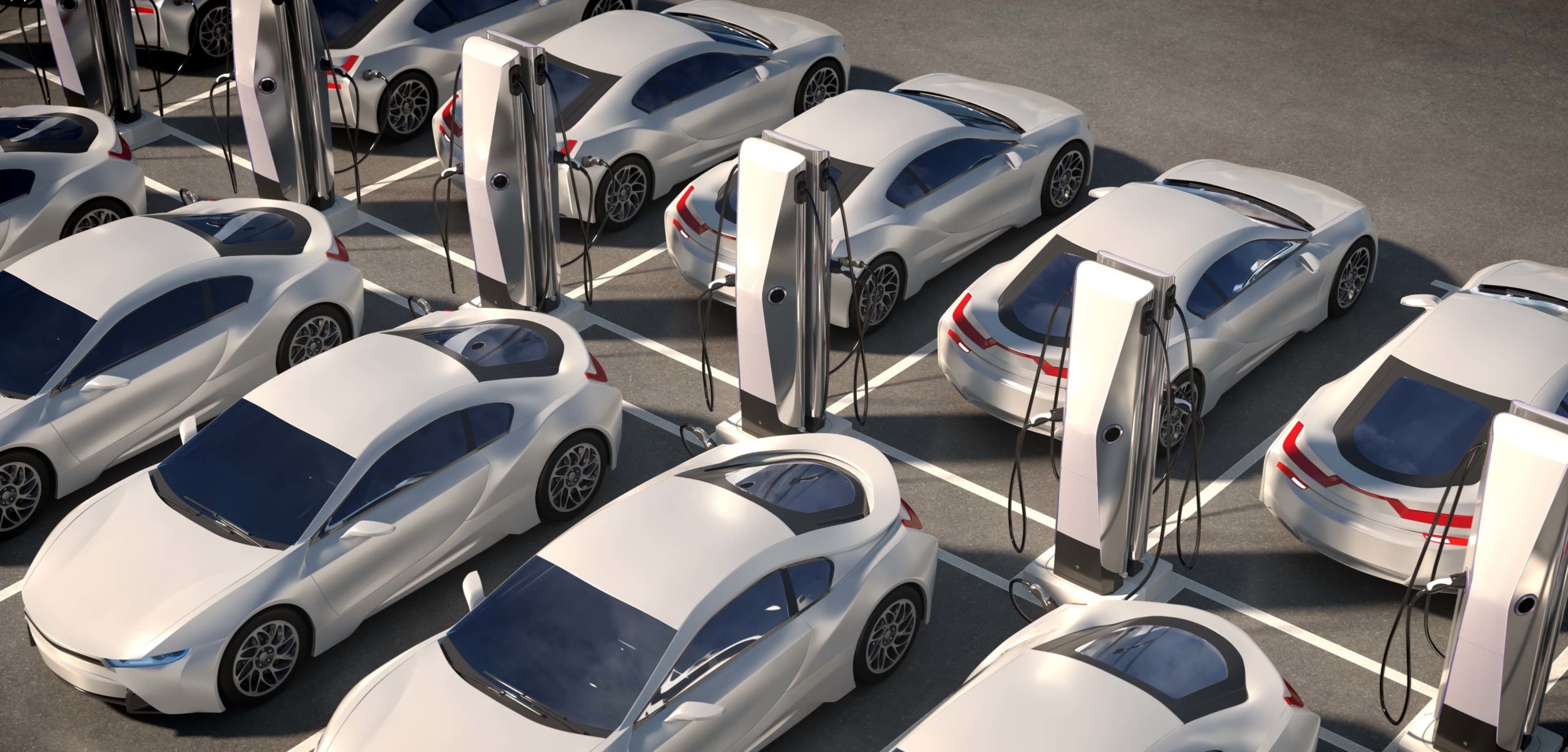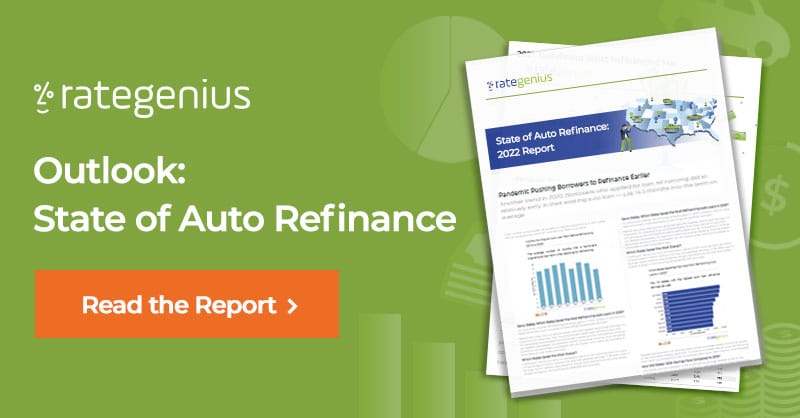Buying an electric vehicle may entitle you to tax credits, rebate programs, and other EV incentives.
There are plenty of reasons to buy an electric vehicle. Eco-conscious drivers may prefer electric vehicles for their lack of emissions. Early adopters may appreciate the tech innovations surrounding EVs. Others still may simply enjoy avoiding high gas prices.
But your purchase of an electric vehicle may come with another benefit, too. Electric vehicle rebates may make your EV purchase more attractive — and affordable — by rewarding you with savings in the form of tax credits, electric utility discounts, and other incentives.
Let’s look at how electric rebates work and how to determine if you qualify for EV incentives (even if you’ve already purchased an EV).
What Is an Electric Vehicle Tax Credit?
The first federal electric vehicle incentive was introduced in the Energy Policy Act of 2005. This entitled qualifying car buyers to a tax credit of up to $3,400 for purchasing a hybrid flexible fuel or plug-in hybrid electric vehicle (PHEV) between December 31, 2005 and December 31, 2010.
Today, federal law provides an EV incentive through the Qualified Plug-In Electric Vehicle (PEV) Tax Credit for new EVs purchased after December 31, 2009.
How the Federal PEV Tax Credit Works
The federal EV tax credit isn’t an upfront discount or rebate. You’ll need to wait until you file your taxes to claim the credit. Properly claiming the tax credit will reduce the amount of taxes you owe, though it doesn’t reduce your taxable income.
As a result, the federal tax credit may reduce or eliminate your tax bill for the year in which it’s claimed. So, even though you’re spending cash to purchase or finance a new EV, you’re reducing the amount of tax you’ll owe for that tax year.
Taxable Income: the amount of money taxable by the government after making adjustments to your gross income, such as deductions and write-offs.
This determines your adjusted gross income which is then used to calculate the amount of taxes you owe.
However, the federal EV tax credit is currently non-refundable. This means that, at most, the tax credit may only reduce the amount of tax you owe to zero; you don’t receive a refund even if the tax credit exceeds the amount of tax you must pay.
For example, if you’re eligible for a $7,500 federal EV tax credit but you only owe $4,000 in taxes, the most the tax credit will do for you is eliminate your tax bill. You won’t receive the excess $3,500 as a refund and it won’t roll over into next year. That said, you probably won’t be too upset about not owing any taxes.
On the flip side, a $7,500 tax credit would reduce a tax bill of $10,000 down to $2,500. In this case, you’d use the entirety of the tax credit you’re eligible for, but still be on the hook for your remaining tax obligation of $2,500.
What is the maximum federal EV tax credit?
Qualifying EVs purchased after December 31, 2009 entitle you to a tax credit of $2,500 plus:
- $417 for a vehicle that draws propulsion energy from a battery with at least five kW hours of capacity
- An additional $417 for each kW hour of capacity in excess of five kW
Altogether, the maximum federal EV tax credit is capped at a total of $7,500.
However, even if you’re entitled to the maximum tax credit as defined by the above criteria, you may not be able to claim the entire $7,500 credit.
The federal EV tax credit phases out for auto manufacturers over a one-year period, beginning in the second calendar quarter after the calendar quarter in which 200,000 qualifying vehicles manufactured by that automaker have been sold in the U.S.
This phase-out gradually reduces your maximum available tax credit based on when you purchased the vehicle:
- Qualifying EVs purchased within the first two quarters of the phase-out are eligible for 50% of the tax credit amount.
- Qualifying EVs purchased within the last two quarters of the phase-out are eligible for 25% of the tax credit amount.
None of this is currently written in stone, though. The proposed Build Back Better legislation includes language aiming to increase the EV tax credit to a maximum of $12,500.
Who Qualifies for the Federal EV Tax Credit?
The federal tax credit is only available to buyers of new qualifying EVs. Used EVs do not qualify for the tax credit, and leased EVs entitle the leasing company to the tax credit. Additionally, qualifying buyers must claim the credit the same year they begin driving the EV.
You can’t pass on the tax credit, either. If you didn’t claim the EV tax credit and decide to sell the car, the new buyer doesn’t become entitled to the credit — it simply vanishes. You also don’t qualify for the tax credit if you intend on reselling the vehicle.
Fortunately, multiple people in the same household are likely able to receive individual federal tax credits for purchasing multiple EVs. So, if you and your spouse each purchase separate qualifying EVs, chances are good that you’ll each be entitled to your own tax credit. However, this may be dependent on how you file your taxes, so consult a tax professional to learn more about your specific situation.
Which EVs Qualify for the Federal Tax Credit?
Eligible vehicles include all-electric vehicles (AEVs) and PHEVs purchased new after 2010, though eligibility is impacted by the manufacturer’s sales. For example, because Tesla sold more than 200,000 vehicles in 2018, Tesla EVs no longer qualify for the tax credit.
However, plenty of electric vehicles are still eligible for the federal tax incentive. The Office of Energy Efficiency and Renewable Energy keeps an up-to-date list.
Other EV Incentives and Rebate Programs
States, communities, and power utilities offer different incentives and rebate programs. These EV rebate programs help offset the cost of buying a new electric vehicle in addition to — or, in some cases, in lieu of — the federal tax credit, as well as helping increase the number of EV owners.
State tax credits
Many states offer tax credits that reduce your state tax obligation in an effort to incentivize state-wide EV adoption. Some state EV tax incentives are less restrictive than the federal tax credit and apply even to those vehicles sold by auto manufacturers for which federal tax credits are no longer available.
Individual state laws and EV incentives are searchable on the U.S. Department of Energy’s Alternative Fuels Data Center (AFDC) website.
Example: The California Clean Vehicle Rebate Project offers rebates between $1,000 and $7,000 for drivers buying or leasing a new EV.
Income-based grants
Some state and local governments offer grants to help drivers below certain income thresholds purchase electric vehicles. Grants provide qualifying applicants with a subsidy for purchasing a new or used EV and do not need to be repaid as long as the buyer adheres to the program’s requirements.
Example: The state of Vermont offers a grant of up to $5,000 through its MileageSmart program for qualifying residents.
Point-of-sale rebate programs
Where EV tax credits come into play at tax time, point-of-sale rebate programs translate to immediate savings upon purchasing a new electric vehicle. This reduces the total cost of purchasing a new EV, with the added bonus of reducing how much interest you’ll pay over the life of your car loan (functioning similarly to a down payment).
Example: The Charge Up New Jersey incentive operated as a POS rebate program until September 15, 2021. Other states continue providing POS electric vehicle incentives, such as the California Clean Fuel Reward. In addition, the Build Back Better bill plans to transition the federal tax credit to a POS rebate program incentive instead.


Utility discounts
Many private and public utility companies offer rate discounts as a perk for residential customers who purchase an electric vehicle. These discounts are offered on a per-utility basis, so may not be available in every service territory or across your entire state.
Energy discounts typically take the form of discounted off-peak electric rate pricing, incentives and assistance for installing home EV chargers or solar panels, and cash rebates for purchasing new or used EVs (generally below a defined mileage).
Example: Delaware Electric Cooperative provides a one-time $200 billing credit for buyers of EVs. A monthly $5 billing credit is also available to customers who participate in the electric utility’s “Beat the Peak” program, which encourages customers to refrain from EV charging during special peak hours.
Charger installation rebates
EV buyers may also qualify for tax credits for home charger installation from their state or local governments. These rebate programs work similarly to other state tax credits, but further reduce your tax obligations, typically up to a percentage or defined amount of the cost of installation.
Example: Washington, D.C. provides a tax credit of 50% (up to $1,000 per station) for the purchase and installation of a charging station at a private residence.
Other EV incentive programs
The benefits of purchasing an EV aren’t limited to monetary perks or discounts. Additional incentives may include:
- One-time sales tax exemptions, like those available in New Jersey for zero-emission EVs
- Reduced sales or use tax for alternative fuel vehicles (AFVs) or PHEVs, as is available in Washington
- Exemption from emissions inspects, as is available in Rhode Island
- High occupancy vehicle (HOV) lane access regardless of the number of passengers, as is possible in Maryland
Electric Vehicle Incentives by State
With the exception of the federal tax credit, EV incentives vary widely from state to state, and not all state incentives are equal. The chart below provides an at-a-glance overview of available EV incentives on a state-by-state basis. Given the fluctuating changes in EV incentives and tax rebates, the AFDC website provides a list of recent state updates to help you remain aware of local rebate programs available to you.
Not Eligible for a Tax Credit or Rebate?
Sometimes, it makes more sense to save money by buying used. Or maybe you really want to buy an EV that no longer qualifies for a tax credit. Whatever your situation, you don’t need to be entirely dependent on a tax credit or other EV incentives to keep some extra money in your pocket.
As automakers continue to innovate on clean air technology and electric vehicles, incentives and rebate programs are likely to continue evolving to push for wider EV adoption. Some well-timed planning may help you knock a bit off the purchase price and zip away in the EV of your choice.
;)




